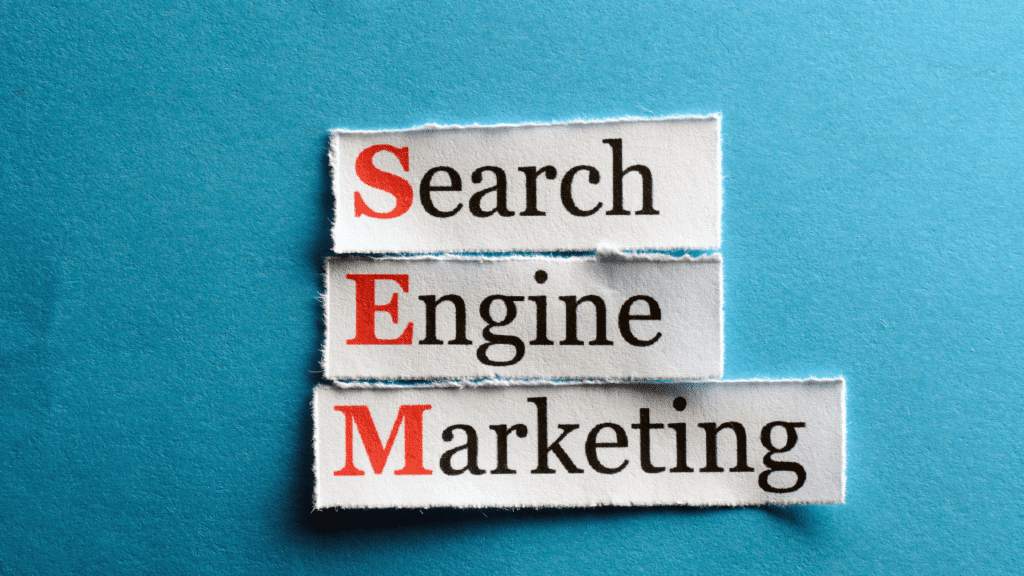In today’s competitive job market, staffing agencies are vital in connecting job seekers with employers. However, staffing agencies must leverage effective marketing strategies to thrive in this dynamic industry. Search Engine Marketing (SEM) has emerged as a powerful tool for attracting job seekers and employers to staffing agency websites. By implementing SEM tactics, staffing agencies can enhance online visibility, drive targeted traffic, and ultimately achieve recruitment goals. In this article, we will explore the significance of SEM for staffing agencies and provide best practices and solutions, including the platforms to consider, to help staffing agencies maximize their success.

SEM encompasses various techniques to promote websites and increase their visibility in search engine results pages (SERPs) through paid advertisements. As a result, SEM offers staffing agencies a unique opportunity to gain a competitive edge and effectively reach their target audience. By bidding on relevant keywords and creating compelling ad copies, staffing agencies can increase their chances of appearing prominently in search results when job seekers or employers search for staffing-related queries.
Best Practices in SEM for Staffing Agencies
- Keyword Research and Selection: The foundation of any successful SEM campaign lies in comprehensive keyword research. Staffing agencies must identify the keywords and phrases that job seekers and employers will likely use when searching for staffing services. Tools like Google Keyword Planner and SEMrush can assist in uncovering high-volume, relevant keywords. Additionally, long-tail keywords (more specific, less competitive phrases) can be advantageous in targeting a niche audience.
- Compelling Ad Copy: Crafting clear and persuasive ad copy is crucial to stand out in the search results and entice potential clients. Agencies should highlight their unique selling propositions (USPs), such as industry expertise, a vast talent pool, or personalized service. Incorporating strong calls-to-action (CTAs) that encourage users to click on the ad can also boost the campaign’s effectiveness.
- Landing Page Optimization: Once users click on an ad, they should be directed to a relevant and optimized landing page. The landing page should align with the ad’s messaging, provide valuable information, and have a clear conversion path. A user-friendly interface, concise content, and primary contact forms can improve the landing page’s conversion rate and encourage users to take the desired action, such as submitting their resumes or contacting the agency.
- Ad Testing and Optimization: Continuous monitoring and optimization of SEM campaigns are vital for maximizing results. Staffing agencies should regularly analyze critical metrics, such as click-through rates (CTR) and conversion rates, to identify underperforming ads and refine their strategies. In addition, a/B testing different ad variations, headlines, or CTAs can provide valuable insights into what resonates best with the target audience and help optimize campaign performance.
- Geotargeting and Ad Scheduling: For staffing agencies operating in specific regions, geotargeting can be an effective strategy to ensure their ads are displayed to users within their desired geographic location. By narrowing their reach, agencies can optimize their budget and focus on areas with the highest demand. Furthermore, utilizing ad scheduling to display ads during peak recruitment periods or specific days and hours can enhance the campaign’s efficiency.
- Remarketing: Remarketing allows staffing agencies to re-engage with previous website visitors who didn’t convert. By displaying tailored ads to these users as they browse other websites or search engines, agencies can stay top-of-mind and increase the likelihood of attracting them back to their websites. Remarketing can be particularly valuable for nurturing relationships with employers and job seekers who may require staffing services in the future.
Platforms to Consider for SEM Campaigns
- Google Ads: As the leading search engine, Google is an essential platform for staffing agencies to consider for their SEM campaigns. With Google Ads, agencies can create highly targeted campaigns by bidding on relevant keywords and displaying ads on the search engine results page. The platform offers various ad formats, including text, display, and video ads, allowing agencies to choose the layout that best suits their goals and target audience. Additionally, Google Ads provides robust analytics and tracking capabilities, enabling agencies to measure the performance of their campaigns and make data-driven optimizations.
- Bing Ads: While Google dominates the search engine market, staffing agencies should not overlook Bing Ads. Bing, the second-largest search engine, reaches a significant user base and can provide valuable opportunities for targeting a different audience segment. By running SEM campaigns on Bing Ads, agencies can tap into a diverse pool of potential candidates and employers who prefer using Bing as their search engine.
- Social Media Advertising: Social media platforms, such as Facebook, LinkedIn, and Twitter, offer robust advertising options that can complement staffing agencies’ SEM efforts. These platforms allow agencies to target specific demographics, interests, and job titles, making it easier to reach the desired audience. For instance, LinkedIn Ads provide a highly effective platform for connecting with professionals and businesses, while Facebook Ads can help target a broader audience of job seekers.
- Industry-specific Job Boards: Staffing agencies often specialize in specific industries or sectors. In such cases, leveraging industry-specific job boards for SEM campaigns can yield excellent results. For example, job boards like Indeed, Monster, and CareerBuilder offer advertising options that allow agencies to promote their services to a targeted audience of job seekers within a particular industry. In addition, these platforms often have advanced targeting capabilities and extensive reach, making them valuable additions to a comprehensive SEM strategy.
Conclusion
Search Engine Marketing (SEM) presents immense opportunities for staffing agencies to expand their online presence, attract targeted traffic, and achieve recruitment objectives. By implementing best practices such as thorough keyword research, compelling ad copy, landing page optimization, ad testing and optimization, geotargeting and ad scheduling, and remarketing, staffing agencies can enhance the effectiveness of their SEM campaigns.
Furthermore, considering the platforms mentioned, such as Google Ads, Bing Ads, social media advertising, and industry-specific job boards, staffing agencies can diversify their reach and engage with a broader range of job seekers and employers. By continuously monitoring campaign performance, analyzing data, and making data-driven optimizations, staffing agencies can maximize the return on their SEM investment and ultimately drive success in the highly competitive staffing and recruiting industry.





